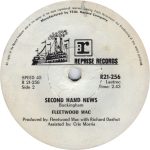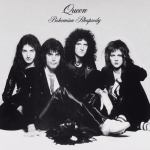
Category: Music
Title: Stairway To Heaven
Artist: Led Zeppelin
Released: 1971
Background
“Stairway to Heaven” is one of Led Zeppelin’s most iconic songs, released in 1971 on their fourth studio album, often referred to as Led Zeppelin IV. Written by guitarist Jimmy Page and vocalist Robert Plant, the song has become one of the most enduring and popular rock tracks in history. Known for its complex structure, poetic lyrics, and memorable guitar solo, “Stairway to Heaven” has been a staple of rock radio and continues to influence musicians and listeners alike.
Inspiration
The inspiration for “Stairway to Heaven” came from a variety of sources. Robert Plant was influenced by British folklore and mysticism, as well as literary works such as J.R.R. Tolkien’s The Lord of the Rings. The song’s lyrics reflect a journey towards spiritual enlightenment and self-discovery, themes that were prevalent in the counterculture of the 1970s. Jimmy Page, a devotee of the occult and mysticism, also contributed to the song’s mystical and enigmatic aura.
Writing Process
The writing process for “Stairway to Heaven” began in early 1970. Jimmy Page composed the music, starting with the finger-picked acoustic guitar intro. He played the early version of the song to Robert Plant, who spontaneously wrote many of the lyrics on the spot. The song evolved over several months, with the band members contributing their parts and refining the arrangement. The lyrics were intentionally cryptic, allowing listeners to interpret the song in various ways, adding to its enduring mystique.
Production
“Stairway to Heaven” was recorded at Island Studios in London and Headley Grange, a remote mansion in Hampshire, England. The production, overseen by Page, aimed to capture the song’s gradual build-up from a quiet acoustic introduction to a powerful, electric climax. The recording process involved multiple layers of guitars, keyboards, and vocals to create a rich, textured sound. Engineer Andy Johns played a significant role in achieving the song’s distinctive sonic quality, using innovative techniques to enhance the recording.
Music and Arrangement
The music and arrangement of “Stairway to Heaven” are notable for their complexity and progression. The song is divided into several sections, each with its own distinct mood and style. It begins with a gentle acoustic guitar and recorder, setting a reflective tone. As the song progresses, additional instruments are introduced, including a mellotron, electric guitar, and drums. The tempo gradually increases, culminating in a powerful guitar solo by Jimmy Page. The final section features Robert Plant’s soaring vocals and an anthemic climax, before gently fading out with a return to the acoustic motif.
Release and Promotion
“Stairway to Heaven” was released as part of Led Zeppelin IV on November 8, 1971. Despite never being released as a single, the song quickly gained traction on FM radio and became a concert staple for the band. Led Zeppelin avoided traditional promotion, relying instead on word-of-mouth and live performances to build the song’s reputation. The band’s refusal to release “Stairway to Heaven” as a single added to its allure, encouraging fans to purchase the entire album.
Reception
The reception of “Stairway to Heaven” was overwhelmingly positive. Critics praised its ambitious structure, lyrical depth, and instrumental virtuosity. The song became a defining moment in Led Zeppelin’s career and is often cited as one of the greatest rock songs of all time. It topped various music charts and polls, earning a permanent place in rock music history. The song’s popularity has endured over the decades, continuing to receive regular airplay and attracting new generations of fans.
Impact
“Stairway to Heaven” has had a profound impact on both the music industry and popular culture. It has influenced countless musicians and bands, inspiring them to explore new musical territories and push the boundaries of rock music. The song’s iconic guitar solo is frequently ranked among the best in history and has become a rite of passage for aspiring guitarists. “Stairway to Heaven” also played a significant role in establishing Led Zeppelin as one of the most important and influential rock bands of all time.
Conclusion
“Stairway to Heaven” stands as a testament to Led Zeppelin’s artistic vision and musical prowess. Its complex structure, poetic lyrics, and powerful performances have made it a timeless classic. The song continues to captivate listeners with its blend of acoustic beauty and electric intensity, embodying the spirit of rock music. “Stairway to Heaven” remains a pinnacle of Led Zeppelin’s legacy, a song that transcends generations and continues to inspire and enchant music lovers around the world.

















Leave a Reply